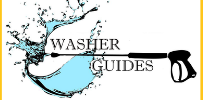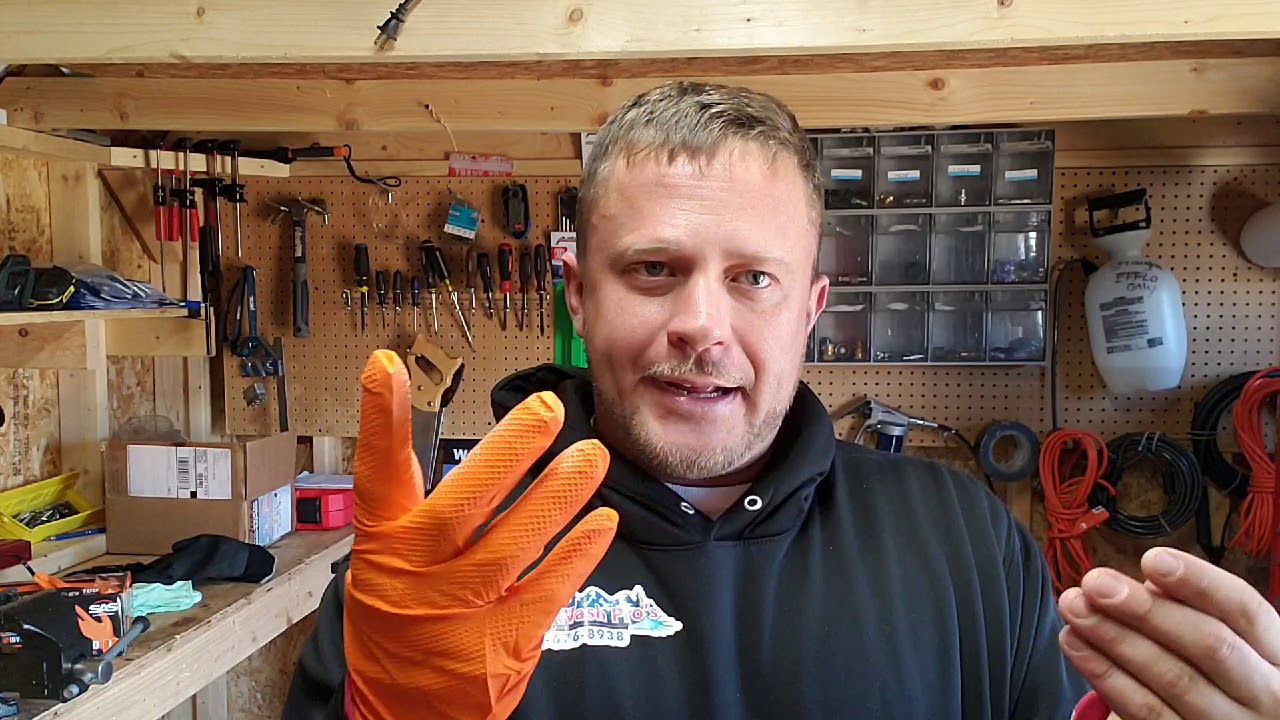If you’re looking for gloves that will protect your hands while pressure washing, you’ve come to the right place. We’ll give you a rundown of the best gloves for pressure washing, so you can choose the right ones for your needs. Pressure washing can be tough on your hands, so it’s important to choose gloves that will offer protection from the elements and from the high-pressure water.
If you’re looking for gloves that will protect your hands while pressure washing, look no further! These gloves are made with a tough, abrasion-resistant material that will keep your hands safe from the high-powered water. Plus, they’re lined with a comfortable fabric so you can keep working without feeling any discomfort.
Pressure Washing Protective Clothing
If you’re planning on pressure washing your home or business, it’s important to take the necessary precautions to protect yourself from injury. Pressure washing can be dangerous if you’re not careful, so it’s important to wear the proper clothing and equipment.
Pressure washing protective clothing includes gloves, goggles, earplugs, and a respirator mask.
You should also wear long pants and a long-sleeved shirt to protect your skin from the high-pressure water. Closed-toe shoes are also a must – no sandals or flip flops!
Make sure you read the manufacturer’s instructions carefully before operating the pressure washer.
And always start with the nozzle at least 2 feet away from your body, gradually moving closer as you get comfortable with the machine.
Pressure Washer
A pressure washer is a handy tool that can be used to clean all sorts of things, from driveways and sidewalks to decks and patios. But before you start using one of these powerful machines, it’s important to understand how they work and what safety precautions you need to take.
Here’s a quick overview of pressure washers:
How do pressure washers work?
Pressure washers use a pump to force water through a small nozzle at high speeds. The combination of the water pressure and the speed at which the water is moving allows the machine to blast away dirt, grime, and other materials.
What are some safety tips for using a pressure washer?
Before you start using your pressure washer, familiarize yourself with the machine and read the user manual. Make sure you understand how to operate the machine safely.
Anti Vibration Gloves
There are many different types of gloves on the market that claim to provide vibration protection, but not all of them are created equal. Anti-vibration gloves are designed specifically to protect your hands from the harmful effects of vibrations, and they can be a great investment for anyone who works with power tools or other vibrating machinery on a regular basis. Here’s what you need to know about anti-vibration gloves and how they can help keep your hands healthy:
How Do Vibrations Affect Your Hands?
Vibrations from power tools and other machinery can cause a condition known as “hand-arm vibration syndrome” (HAVS). HAVS is a progressive condition that can lead to permanent damage to the blood vessels, nerves, and muscles in your hands.
Symptoms of HAVS include numbness, tingling, loss of sensation, and pain in the affected hand(s). In severe cases, HAVS can even lead to disability.
Why Are Anti-Vibration Gloves Effective?
Anti-vibration gloves work by absorbing vibrations before they reach your hands. They’re typically made from materials like gel or rubber, which help to dampen vibrations while still allowing you to maintain a good grip on whatever you’re working with. Many anti-vibration gloves also feature padded palms for additional comfort and protection.
Pressure Washer Safety Osha
If you’re using a pressure washer, there are some safety guidelines that you need to follow in order to avoid injury. Here are some tips from OSHA on how to stay safe while using a pressure washer:
1. Always wear appropriate personal protective equipment, including gloves, safety glasses or goggles, and earplugs or other hearing protection.
2. Be aware of your surroundings and keep children and pets away from the area where you’ll be using the pressure washer.
3. Never point the nozzle of a pressure washer at anyone, and be careful not to spray yourself with water as it can cause serious injuries.
4. Follow the manufacturer’s instructions for use and maintenance of the pressure washer.
Power Washer Suppliers
There are many power washer suppliers on the market. Some of the most popular brands include:
1. Karcher
2. Simpson
3. Briggs & Stratton
4. Generac
5. Ryobi
6. Homelite
Each brand has their own unique features and benefits that make them stand out from the rest.
However, when choosing a power washer supplier, it is important to consider your needs and budget to ensure you get the best possible product for your money.
Pressure Washer Wand
A pressure washer wand is a great tool for cleaning outdoor surfaces. It can be used to clean driveways, decks, patios, and more. Pressure washers are available in a variety of sizes, so it’s important to choose the right one for the job.
The size of the unit will determine the maximum pressure that can be delivered.
To use a pressure washer wand, start by attaching the hose to theunit. Next, fill the soap reservoir with detergent and add water until it reaches the fill line.
Then, turn on the power switch and squeeze the trigger to release water fromthe wand. Adjustthe pressure settings as needed based on the surface you’re cleaning. When you’re finished, release the trigger and turn offthe power switch.
Osha Ppe Requirements for Pressure Washing
When it comes to pressure washing, there are a few key OSHA PPE requirements that you need to be aware of. First and foremost, always make sure to wear closed-toe shoes while operating a pressure washer. This will help protect your feet from any potential injuries that could occur if debris or water were to come into contact with them.
In addition, always wear ear protection when using a pressure washer as the loud noise can damage your hearing over time. Finally, be sure to wear eye protection at all times while operating a pressure washer as the high-pressure water can cause serious injury to your eyes if they are not protected. By following these simple OSHA PPE requirements, you can help keep yourself safe while pressure washing.
Pressure Washer Parts
If you’re looking to buy a pressure washer, or even if you already have one, it’s important to know the different parts that make up this handy tool. By understanding the individual components of a pressure washer, you can more easily troubleshoot any issues that may arise and keep your machine running smoothly for years to come.
The heart of any pressure washer is the pump.
This vital component pressurizes the water coming from your hose and sends it through the wand and nozzle at high speeds. There are two types of pumps commonly used in pressure washers: piston pumps and diaphragm pumps. Piston pumps are typically found on lower-end models and require more maintenance than diaphragm pumps, which are sturdier and able to handle more wear and tear.
Next is the high-pressure hose, which connects the pump to the wand. This hose is reinforced with steel or Kevlar fibers to withstand high water pressure without bursting. Most hoses are about 50 feet long, though longer options are available for commercial use.
Finally, there’s the wand – this is what you hold onto when spraying water from your pressure washer. The wand houses a trigger mechanism that controls the flow of water and can be fitted with various nozzles depending on your needs (e.g., fan tip vs pencil tip).

Credit: www.pinterest.com
What Do You Wear to Pressure Wash?
Assuming you are talking about personal protective equipment (PPE) while pressure washing, here is what you should wear:
Pressure washing can be a dangerous job if the proper precautions aren’t taken. That’s why it’s important to always wear the proper PPE while pressure washing.
This includes wearing gloves, safety glasses, and ear protection. You should also wear long pants and closed-toe shoes to protect your skin and feet from the high-pressure water stream. And finally, be sure to wear a respirator mask to protect your lungs from any harmful chemicals that might be in the water.
Which Ppe is Recommended to Be Worn When Using Any Pressure Washer?
Assuming you are asking about personal protective equipment (PPE) for the operator of a pressure washer:
The Occupational Safety and Health Administration (OSHA) recommends that operators wear gloves, eye protection, and hearing protection when using a pressure washer.
Operators should also be aware of the dangers of slips, trips, and falls and take precautions accordingly.
Wearing slip-resistant shoes or boots is recommended. If the job site is wet or slippery, operators may also want to use a body harness with a lanyard attached to the machine to help prevent falls.
Can You Get Hurt With a Pressure Washer?
If you’re not careful, yes – you can definitely get hurt with a pressure washer. Pressure washers are powerful machines that shoot out a high-pressure stream of water, and if that stream of water hits you in the wrong way, it can cause some serious injuries.
Here are some ways that people have gotten injured by pressure washers:
1. Being hit by the stream of water itself. This can happen if you’re not paying attention and the pressure washer’s stream of water hits you in the face or body. The high-pressure stream of water can cause bruising, cuts, and even broken bones if it hits you hard enough.
2. Falling while using a pressure washer. This is especially dangerous if you’re using a tall ladder to reach up and wash something higher up – if you fall off the ladder, you could seriously hurt yourself (or even die).
3. Electrocution from faulty wiring/equipment.
If the pressure washer is not properly grounded or has faulty wiring, there is a risk of electrocution if you come into contact with the stream of water. Always make sure your pressure washer is properly maintained and inspected before using it!
Should I Wear a Mask When Pressure Washing?
Most pressure washers produce pressures of at least 1,000 pounds per square inch (psi). At these pressures, even a small droplet of water can penetrate the skin and cause serious injury. That’s why it’s important to always wear protective clothing, including gloves, when operating a pressure washer.
But what about a mask? Should you wear one when pressure washing?
The answer is maybe.
If you’re going to be using a pressure washer for an extended period of time, or if you’re going to be working in an enclosed space, then wearing a dust mask or respirator is definitely a good idea. This will help protect your lungs from any harmful dust or particles that might be kicked up by the pressure washer.
However, if you’re just using the pressure washer for a quick cleanup job outdoors, then wearing a mask probably isn’t necessary.
Just use common sense and take precautions to avoid getting any water or debris in your eyes or mouth.
Chemical Gloves For Pressure Washing
Conclusion
If you are pressure washing your house, deck, or driveway, you will need to wear gloves. This is because the high-pressure water can strip away your skin’s natural oils, leaving your hands feeling dry and irritated. Wearing gloves will help protect your hands from the harsh water and keep them feeling soft and healthy.

